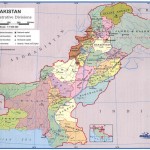The Real Reasons Why the US and India Demonize Pakistan’s ISI
By
Shahid R. Siddiqi. Axis of Logic
Axis of Logic
Pakistan’s Inter Services Intelligence agency, or ISI as it is popularly known, is seen as their nemesis by those who have tried to undermine the security interests of the country one way or the other. It is no wonder then that in past few years the Americans unleashed a strong ISI-bashing campaign, with India following suit.
The Americans made no bones about their dislike for this agency, blaming it for working against their interests in Afghanistan. The Indians also see an ISI agent behind every rock in Kashmir and in Afghanistan where they are trying to dig their heels. They do not hesitate to pin on ISI the blame for the freedom struggle in Kashmir or for acts of terrorism by Indian extremists. Until recently the Karzai government dominated by the anti-Pakistan Northern Alliance also remained hostile to ISI.
Not too long ago, under intense American pressure the weak Zardari government made an unsuccessful attempt at neutralizing and subduing this agency in disregard to the existing sensitive regional security environment, by moving it out of the army control and placing it under the controversial and embattled Zardari loyalist interior minister – Rehman Malik. This did not succeed for a simple reason. The role of ISI as the eyes and ears of the Pakistan’s military – the bedrock of country’s security, is critical particularly at a time when the country faces multiple threats to its security.
Washington’s darling in the Afghan-Soviet war
Ironically, this is the same ISI that was Washington’s darling during the 1980s when it was master minding the jihad against invading Soviet forces in Afghanistan. The role that ISI then played was congruent with American interests. The defeat of the Soviet Union would have meant realization of an American dream – avenging the humiliation of Vietnam. They held ISI in high esteem for its competence and professionalism and gladly funneled arms and funds to the Afghan mujahedeen through it. The ISI strategized the resistance and organized and trained the mujahedeen fighters, working in close collaboration with the CIA and the mujahedeen leaders, forcing the Soviets to retreat.
But as soon as the Americans had negotiated a quid pro quo – Russian withdrawal from South America in exchange for safe Soviet exit from Afghanistan, they disappeared in the middle of the night leaving Afghanistan in a quandary. The political turmoil that followed created chaos and instability owing to the failure of mujahedeen leadership, presenting as a result a security nightmare for Pakistan.
Taliban-US-Pakistan relations and the Indian Threat
In this chaos a group of young Afghan religious students, many of them former fighters from the resistance, calling themselves Taliban (in Pushto language Taliban means students), swept through the country with popular support to establish their rule. Interested to keep their presence alive, the Americans maintained contacts and supported them, ignoring their orthodox beliefs, their harsh rule and even the presence of Al Qaeda in their midst. This continued until it was time for the Americans to overthrow their government in order to serve the changing American interests.
While the Taliban government was in control, Pakistan too maintained friendly relations with them in the interest of keeping its western border secure, extending whatever support it could. The ISI played a role through the contacts it had developed during war against the Soviets.
In the wake of 9/11 things began to change. Having invaded Afghanistan in the name of war on terror, branding Taliban as brutes and their resistance as terrorism, the Americans wanted the Pakistan army and the ISI to join the war.
This posed a serious security concern for Pakistan. It could destabilize the Pak-Afghan border and strain relations with the Pashtun tribes on both sides of the Durand Line, the British drawn boundary that cut through the Pashtun region to divide British India and Afghanistan and which Pakistan had inherited. The fact that Pakistan’s border region, called Federally Administered Tribal Areas (FATA) is autonomous where the writ of the Pakistan Government does not prevail made matters more complex.
Pakistan’s military doctrine is based primarily on meeting the main threat from India on its eastern border while maintaining a peaceful border with Afghanistan in the west. A direct conflict with the Taliban would have forced Pakistan to divert its military assets from eastern to the western front, thus thinning out its defenses against India. This was the last thing Pakistan wanted to do because of its unfavorable ratio of 1:4 against India in terms of conventional forces. Understandably, President Musharraf was unwilling to do the American bidding.
U.S. projection of its military failures onto Pakistan
There always is a problem with powers that begin to act in imperialistic fashion. Their vision of the world becomes colored. They tend to believe that pursuit of their imperialist designs takes precedence over the national interests of those who cannot stand up to them, even if that means compromising their own national and security interests. America had also been behaving as one such imperial power and treated its smaller allies more like colonies. President Musharraf was threatened that in case of noncompliance with America’s wishes, “Pakistan would be bombed into the stone-age”. Musharraf was coerced into conceding to American demands.
Despite the state-of-the-art surveillance equipment and military hardware, the US and NATO forces failed to stop the Taliban fighters from moving back and forth into the unmarked Pak-Afghan border that passes through a treacherous mountainous region to regroup and strike on the invading foreign troops. The American commanders reacted by demanding that the Pakistan army engage these fighters and seal the border. Those with even the slightest knowledge of the area would know that the Americans were asking for the moon. This was physically impossible.
Pakistan army’s operations failed. In the process it earned a severe backlash from the local tribes who resented army’s action against their kinsmen from across the border who sought refuge in their area, as it violated the old tribal custom of providing sanctuary to any one who asked for it, even it was an enemy. The Pakistan army paid a heavy price. More soldiers died in this action than the combined number of casualties that the US and NATO troops have suffered in Afghanistan so far.
President Musharraf under advice of his army commanders and the intelligence community called off the action and resorted to persuasion instead. Through jirgas (assembly of tribal elders) effort was made for the tribesmen to voluntarily stop the influx of Taliban fighters. It didn’t succeed either. This was not to the liking of the American commanders. They blamed the ISI for working against their interests.
Washington accuses the ISI of complicity with insurgents
Washington and the American media frequently alleged that elements within ISI were maintaining contacts with the Taliban and attributed the failure of American troops in combating the Taliban to these contacts. Such allegations were also found to be part of the raw, unverified and even fabricated field reports ‘leaked’ in Afghanistan recently and splashed in the western media. The Americans have in the past also described the ISI to be out of control and demanded of the Pakistan government to purge the agency of Taliban sympathizers.
This is ridiculous. Firstly, ISI is a military organization operating under strict organizational control and discipline where officers are rotated in the normal course. It functions according to a defined mandate, unlike armed forces in some other countries and unlike the CIA which is known to be an invisible government on its own. Above all, Pakistan and its military are committed to weeding out religious extremism as a matter of state policy.
Secondly, if the American troops are so incapable of overcoming a rag tag army of Taliban and if the complicity of ISI with the Taliban can be instrumental in changing the course of the American war, then it is a sad day for America as a super power and the strength of NATO forces becomes questionable.
Thirdly, in the world of intelligence, contacts are kept even with the enemy and at all times. CIA keeps contacts within Russia and other hostile countries. Israel, the great American ally, spies on America itself. It is common for all intelligence agencies to do this in the security interests of their countries. Why then should America expect an exception to be made in case of ISI? Why should contacts that ISI developed with the mujahedeen and the Taliban earlier, and which if it does still maintain, become a source of such great concern for the American administration?
Demanding that the ISI subordinate Pakistan security to U.S. interests.
It is strange that America expects ISI to serve the American agenda instead of Pakistan’s interests first. One cannot forget that the Americans have a long history of abandonment of friends and allies and when they repeat this in Afghanistan citing their own national interest, despite their promises to the contrary, why should Pakistan be expected to be caught with pants down? Why Pakistan’s military and the intelligence agency should be expected to abdicate their duty and not do what is necessary to ensure Pakistan’s security in the long term?
It has often been argued that America expects Pakistan to be actively engaged in the Afghan war in return for the military assistance it provides. The answer is quite simple. The American establishment is doing all that needs to be done in support of its own war and not for the love of Pakistan. The war is theirs, not Pakistan’s. Pakistan should do and is doing what is necessary and feasible, without jeopardizing its own security.
As for the assistance, bulk of the $10 billion that America gave in the past and was branded as “aid” was in fact the reimbursement of expenses that Pakistan had already incurred in supporting the war effort. The rest was to meet Pakistan’s needs for operations in the border areas and for fighting terrorism that arose out of the war. The Americans still owe $35 billion to reimburse the losses Pakistan has incurred due to this war. As for the F16s that Pakistan is getting from the US, it pays for them, despite strict restrictions over their usage.
The Indian-Israeli attempt to destabilize Pakistan
While Americans had their issues with ISI, the Indians and Israelis began having their own. The agency exposed the growing Indian and Israeli confluence in Afghanistan to destabilize Pakistan. This happened right under the nose of the Americans and obviously not without their knowledge and consent. India having deployed its troops in the name of infra-structure development in league with Karzai government and with American funding and having established seven consulates along the sparsely populated Pak-Afghan border was engaged in heavily bribing the influential but ignorant and susceptible tribal leaders to spread disaffection among the local tribesmen against Pakistan.
Evidence was also unearthed by ISI about how the Indians bought the loyalties of Tehrik-e-Taliban Pakistan (TTP), a grouping of Pakistani tribesmen from FATA and Uzbek fighters from previous wars who settled in the region. The TTP were influenced by the same orthodox religious beliefs as the Taliban in Afghanistan and were active in propagating them in their own areas. They were recruited to launch terror activities in the urban centers of Pakistan, including the capital Islamabad, and were funded, trained and equipped in Afghanistan jointly by the Indian, Israeli and Afghan intelligence agencies. A group from amongst them managed to gain control of Swat area adjoining FATA through coercion of the local population, which was later cleared by the Pakistan army after a major surgical intervention.
The ISI also laid bare strong physical evidence of Indian involvement in supporting insurgency in Balochistan by way of funding, training and equipping misguided and disgruntled Baloch elements grouped under various names including the Balochistan Liberation Army that was led by the fugitive grandson of the notable Bugti tribal chief – Akbar Bugti. His comings and goings in the Indian consulate at Kandahar and the Indian intelligence HQ in Delhi were photographed and his communications intercepted. Numerous training camps in the wilderness of Balochistan were detected where Indian trainers imparted training in guerilla warfare and the use of sophisticated weapons, which otherwise could not be available to the Baloch tribesmen. Flow of huge funds from Afghan border areas to the insurgents was detected that was traced back to the Indian consulates.
Summary and conclusion
The objective of the TTP, and behind the scene that of the Indians and the Israelis, was to make the world believe that Pakistan was under threat of capitulating to terrorist and insurgent elements who were about to take control of Pakistan’s nuclear assets. Their goal: to denuclearize Pakistan through foreign intervention.
These efforts have not succeeded. Undoubtedly, the army and the ISI played a crucial role in foiling the plots of subversion in Balochistan and the Pashtun region and exposing the foreign hands involved, including those of CIA, RAW, Mossad, RAMA and MI6. Terrorism may not yet be eliminated but Pakistan faces no existential threat.
It should be no surprise to the Americans, Indians and the Israelis if they find in ISI an adversary to reckon with. It is also not surprising that the ISI is in their perception, a rogue organization, for it has stood between them and Pakistan’s national security interests. Their frustration and ire, therefore, is understandable.
Shahid R. Siddiqi obtained his Masters degree in Chemistry and English Literature. He served in the Pakistan Air Force and subsequently joined the corporate sector with which he has remained associated until recently in senior management positions in Pakistan, United States, Saudi Arabia and South Africa. Alongside, he worked as a broadcaster and remained the Islamabad bureau chief of an English weekly magazine ‘Pakistan & Gulf Economist published from Karachi (Pakistan). In the U.S. he co-founded the Asian American Republican Club in Maryland in 1994 to encourage the participation of Asian Americans in the mainstream political process.
He was a freelance writer on political and geopolitical issues and his articles are carried by the daily newspapers Dawn and The Nation in Pakistan, German magazine Globalia and online publications such as Axis of Logic, Foreign Policy Journal and Middle East Times.
© Copyright 2013 by AxisofLogic.com














